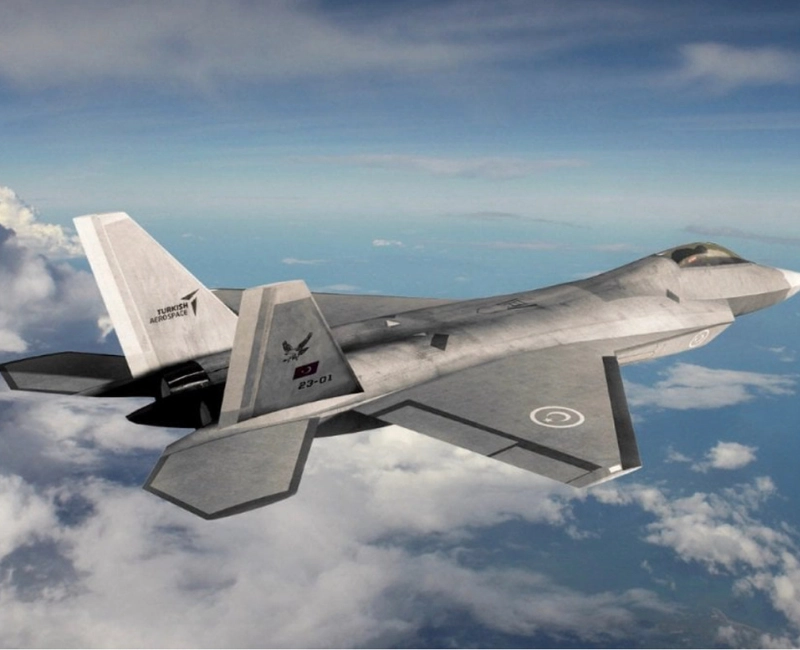Turkey Reshuffles Top Military Command: What Does It Mean for National Security?
What prompts a nation to reorganize its military leadership? Why does Turkey frequently adjust its top brass? How do these changes impact both domestic stability and international relations? These questions arise following Turkey's recent Supreme Military Council meeting, which resulted in significant command reshuffles across the armed forces. This strategic realignment reflects both institutional reforms and geopolitical calculations in a turbulent region.
The Supreme Military Council's Key Decisions
The Supreme Military Council (YAŞ), Turkey's highest decision-making body on military promotions and appointments, convened under President Recep Tayyip Erdoğan's leadership. The meeting resulted in the appointment of new commanders for the Land Forces, Naval Forces, and Air Forces, marking one of the most comprehensive leadership changes in recent years.
The council promoted General Selçuk Bayraktaroğlu as the new Land Forces Commander, while Admiral Ercüment Tatlıoğlu assumed command of the Naval Forces. The Air Force saw General Atilla Gülan taking the helm. These appointments came alongside dozens of other high-level promotions and retirements within the military hierarchy.
Such reshuffles occur annually, but the scale of this year's changes suggests a more profound transformation underway in Turkey's defense establishment. The moves follow constitutional amendments that increased presidential authority over military appointments since the transition to an executive presidency system.
Institutional Reforms Behind the Reshuffle
Turkey's military restructuring cannot be understood without examining the sweeping reforms implemented after the 2016 coup attempt. The government initiated a massive purge of alleged Gülen movement sympathizers while simultaneously reorganizing the chain of command to increase civilian oversight.
The current reshuffle continues this institutional transformation, with several appointments going to officers who played key roles in counterterrorism operations, particularly against PKK militants in southeastern Turkey and northern Iraq. For instance, the new Land Forces commander previously led critical operations in Operation Olive Branch in Syria's Afrin region.
This pattern suggests that combat experience against non-state actors now weighs heavily in promotion criteria, alongside traditional career progression through staff positions. The emphasis on counterinsurgency expertise reflects Turkey's security priorities amid ongoing conflicts across its borders.
Geopolitical Implications of the Changes
The leadership transition occurs at a delicate geopolitical moment for Turkey, which maintains military presence in northern Syria, conducts operations against PKK bases in Iraq, faces tensions with Greece in the Eastern Mediterranean, and plays a mediating role in the Ukraine conflict.
The new naval commander's background in Aegean and Mediterranean operations suggests Turkey may prioritize maritime security amid disputes over energy exploration rights. Similarly, the air force appointment of a pilot with extensive NATO experience indicates continued commitment to the alliance despite occasional tensions.
Regionally, the reshuffle may influence Turkey's approach to:
- Ongoing operations against Kurdish militants
- Relations with Russia in Syria and Libya
- Balancing acts between Ukraine and Russia
- Mediterranean energy disputes
Domestic Political Dimensions
The military reshuffle carries significant domestic political weight in Turkey, where the armed forces have historically played an influential role. The current changes reinforce civilian authority over the military while ensuring alignment with government security policies.
Notably, the appointments come ahead of critical elections, though Turkish officials emphasize that military promotions follow institutional procedures rather than political timelines. The government has framed the changes as part of its broader vision for a "strong Turkey" with robust national defense capabilities.
Opposition parties have raised questions about whether the reshuffle adequately addresses concerns about military transparency and accountability. Some analysts suggest the changes reflect an effort to consolidate loyal leadership ahead of potential future challenges.
Comparative Perspective: Military Reshuffles Globally
Turkey's experience mirrors broader global trends in military leadership transitions. Like the United States' regular turnover of Joint Chiefs of Staff or Russia's frequent defense minister changes, Turkey's reshuffle represents normal institutional refreshment—albeit with unique national characteristics.
However, Turkey's situation differs in the scale and frequency of changes following the post-coup purges. Over 4,000 officers were dismissed in recent years, creating unusual promotion opportunities for mid-career officers. This has led to a younger, more rapidly promoted leadership cohort compared to traditional military hierarchies.
Other countries undergoing significant military reforms, such as France (following its African operations drawdown) or Germany (amid its Zeitenwende defense policy shift), provide interesting comparisons for understanding institutional transformation processes.
Future Trajectory of Turkish Defense Policy
The new military leadership will likely continue Turkey's assertive defense policy characterized by:
- Cross-border counterterrorism operations
- Development of domestic defense industries
- Balanced relations with NATO and non-Western partners
- Protection of maritime interests
The appointments suggest continuity in Turkey's security approach rather than radical departure. However, the generational shift in military leadership may gradually influence operational styles and strategic thinking, particularly regarding emerging technologies like drones and cyber warfare where Turkey has made significant investments.
As these new commanders assume their roles, international observers will closely watch for signs of evolving Turkish military doctrine and its implications for regional stability from the Middle East to the Black Sea.






